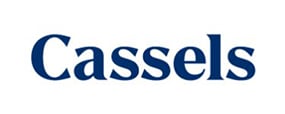There have been many successes and failures with legalization of cannabis in Canada at every level. There have been companies that thrived, a few that survived, and many that are no longer with us. The system has created new channels of trade, many jobs, and innovative products that many consumers want without any major concerns about public safety. However, the system has also kept the door open for the black market and the uncertainty and restrictive rules have been an impediment to many who have entered it and a barrier to many more. These rules include, but are not limited to, broad restrictions on the manner in which cannabis and cannabis products may be marketed and advertised, limitations on the channels through which companies may sell their products in various jurisdictions, and the significant governmental charges that are imposed on the sale of cannabis products that can make margins razor thin.
With the cannabis industry moving to the next phase of its lifecycle, many are now looking forward to the removal of other products from the list of controlled substances. The most popular has been psilocybin/psilocyn, more colloquially known as magic mushrooms. Novel research is focused on the potential medical and health benefits that may be linked to these active ingredients as well as certain non-psychoactive components of the mushrooms. As a result, many companies are developing products that they plan to market as having utility as natural health products.
Given the federal governments reliance on tobacco regulations and the controlled drug regime in developing the statutory regime that applies to cultivation, marketing, and sale of cannabis, it is reasonable to ask whether the approach taken with cannabis is a reasonable predictor of how the next controlled substance will be treated as it moves towards legalization. In our view, these questions may be premature. While the appetite to legalize medical and recreational cannabis was present and had long been strong in many segments of the population, it was still a huge challenge to convince many decision-makers to take the first step to decriminalize cannabis and a further leap to endorse legalization.
Regulation and Control
Arguably, the same impetus does not presently exist for products that contain psilocybin/psilocyn despite the evidence coming out of various research initiatives about the potential medical and health benefits of psilocybin/psilocyn. Since the stigma attached to these substances is still quite significant, it will be difficult to get the same fence-sitters or doubters who ended up supporting cannabis to also support the decriminalization or legalization of magic mushrooms. As such, companies and investors looking at the magic mushroom industry should familiarize themselves with the regulations as they exist now with the expectation that they may not change in the near future.
Psilocybin and psilocyn are regulated as controlled substances, listed in Schedule 3 of the Controlled Drugs and Substances Act.[1] Although the restrictions and penalties imposed for the improper use of psilocybin are less significant than with respect to substances listed in Schedules 1 or 2 (e.g., heroin, methamphetamines), there are still burdensome regulatory requirements that apply to the use of psilocybin for commercial and non-commercial purposes, including research and development of new products and treatments using the substance. That said, it is still possible to procure, use, and create products from magic mushrooms, but one must do so within the confines of the controlled substances regime in Canada.
Research and Clinical Purposes
The first step many companies are taking is collaborating with universities and health care professionals to fund testing of psilocybin or psilocyn either in a research setting or in preclinical or clinical trials. To support this kind of work, the controlled substances legal regime in Canada allows investigators affiliated with such institutions to apply for an exemption from the restrictive regime to acquire psilocybin or psilocyn for research or clinical purposes. This exemption allows investigators to acquire, possess, and use the controlled substances under strict conditions. Investigators are not permitted to transport or sell the substances and must keep detailed records regarding their possession and use of the substances. The investigator and the institution involved in the research or other initiative are jointly responsible for the security of the substances and ensuring that the substances do not leave their control.
Licensed Activities
For many businesses, the objective is not research and development of new products and treatments. Instead, these businesses focus on the cultivation, manufacture, transport, import, export, or sale of psilocybin and/or psilocyn within the confines of the legal regime in Canada. Under the current statutory regime, parties may obtain a dealer’s licence for certain controlled substances.[2] Psilocybin and psilocyn are both listed in schedules which permit the issuance of a dealer’s license under the Food and Drugs Regulations.[3]
Under these regulations, an individual or company can apply to be allowed to produce, assemble, sell, provide, transport, send, deliver, import, or export psilocybin or psilocin as a licensed dealer. As part of this process, the applicant will need to appoint two key people who will take responsibility over the operations. The first is a “senior person in charge”[4] who is responsible for management of the activities related to the restricted drug. The senior person in charge is not mandated to have any prerequisite qualifications. The applicant will also need to appoint a “qualified person in charge”[5] who is responsible for supervising the activities with respect to the restricted drug and ensuring compliance with the law. The qualified person in charge must meet all the qualifications set out in the regulations.[6] The applicant has the option to name an alternate qualified person, given the critical nature of their role. The same person could fill both roles as long as the prerequisites for the “qualified person in charge” are met.
In addition, depending on the type of activity one wishes to conduct with the restricted drug, specific information will need to be provided to ensure that an application is eligible for approval. For example, when applying for import or export licences, one will also need to apply for a permit for each shipment going in or out of the country.[7] This allows the government to continuously and consistently track every gram of the restricted drug in the country. In connection with any application, the government will conduct criminal background checks. If the individual applying for a licence has a criminal conviction, it is more likely than not that the individual’s application will be refused, or dealer’s licence revoked.
It is important to note that once an applicant obtains a licence, the activities that the licensee may engage in are limited to the strict confines of the licence. For example, the parties to whom a licensed dealer can sell to are limited to researchers and clinical testing sites that have obtained an exemption described above or the Minster of Health. However, these requirements are not at odds with the objective of many companies to create a medical or therapeutic product based on the restricted drug. The upside for these companies could be incredibly high if their research leads to the development of an effective pharmaceutical or marketable natural health product. Either way, in our view, the regime that exists today with respect to the exploitation of psilocybin and psilocyn is unlikely to change in the foreseeable future. As a result, persons that are interested in entering the industry should familiar themselves with the current restrictions and requirements that apply to these substances. In our view, any notion that magic mushrooms will be legalized for recreational use in the short to medium term in Canada is premature.
***
Chandimal Nicholas is a partner in the Intellectual Property Group at Cassels, and is also a Registered Trademark Agent. Chandimal assists clients in all areas of intellectual property law with a focus on patents and trademarks. He also assists and advises clients with regulatory issues in the cannabis, food, pharmaceutical, medical device, cosmetic and natural health products industries.
***
Marco Ciarlariello is an associate in the Business Law Group at Cassels. Marco focuses on the areas of intellectual property, information technology and sports. He regularly drafts and negotiates commercial agreements that relate to the acquisition, licensing and disposition of IP and IT rights and provides advice on data privacy issues. Marco’s practice also involves a variety of work in the sports and entertainment industries.





